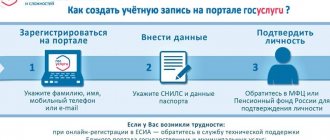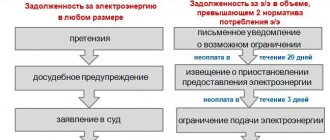What is it - loss of material value?
This is the loss of any material assets under certain circumstances that cannot be foreseen, predicted or prevented in advance.
The risks of the seller and the buyer are regulated by Article 493 of the Civil Code of the Russian Federation “Form of a retail purchase and sale agreement”, art. 211 of the Civil Code of the Russian Federation and Article 1064 of the Civil Code.
What is product damage? Violation of the integrity of the product packaging or damage to it may lead to a decrease in the consumer properties or commercial qualities of the product. If the integrity of the packaging is violated by the visitor, the factor of guilt is again considered . If it was damaged intentionally, you will need to pay for part of the product or the entire product if, due to a torn box, for example, it has completely lost its consumer properties.
At what point does responsibility pass to the buyer?
When does responsibility for the product pass to the buyer?
Article 493 of the Civil Code of the Russian Federation “Form of a retail purchase and sale agreement” clearly states that the goods and all risks associated with them pass to the person at the time of payment for the goods.
That is, as soon as the check is punched and the money is accepted, ownership and responsibility are transferred to the buyer for everything that lies behind the cash register tape.
Until this moment, ownership of the product and all risks associated with its loss lie with the seller, that is, the store itself. This applies specifically to accidental, unintentional damage to goods in a store by a visitor. If the packaging of the goods was damaged in the store, including if you accidentally, through no fault of your own, dropped the box and damaged the packaging, or the courier damaged it at the time of delivery, you can safely refuse the purchase.
Until the goods are fully checked and the acceptance certificate is signed, the store is responsible for it. As soon as the deed is signed and the check is received, all risks pass to the buyer .
Responsibility

If a customer accidentally breaks something in a supermarket, what should he do and who is responsible? On the one hand, Article 493 of the Civil Code of the Russian Federation “Form of a retail purchase and sale agreement” directly speaks of the seller’s responsibility for everything that is stored on the sales floor.
On the other hand, the seller is protected by another law, Article 1064 of the Civil Code , which states that “harm caused to the person or property of a citizen, as well as harm caused to the property of a legal entity, is subject to compensation in full by the person who caused the harm.” You can also add the following paragraph - in paragraph 2 of Article 1064 of the Civil Code of the Russian Federation there are the words: “The person who caused the harm is exempt from compensation for the harm if he proves that the harm was caused not through his fault.”
Thus, responsibility for broken goods lies with the buyer if it is damaged due to negligence associated with the actions of the person himself, as well as if the item is broken intentionally.
What to do if you break something in a store?
If the goods are damaged, for example, if they fall, what will happen? It all depends on the specific case. If the visitor is absolutely sure that he broke the bottle not through his own fault, but through the fault of the store, but the seller insists on paying for the damaged item, the following actions must be taken:
- call the store administrator;
- explain that the can/bottle was broken accidentally or due to the fault of the store;
- together with the responsible person, draw up an act of damage to the goods;
- find witnesses, ideally two, who can confirm your words in court;
- If a security guard exceeds his authority and does not let you out of the store, call the police.
After this, you can wait for a summons to appear in court. But in 99% of cases, the store will not demand compensation in court , since its costs will significantly exceed the cost of a broken jar of cucumbers or a bottle of mineral water.
You can find out more about what to do if you break an item in a store in this article.
Why do we need a scrap/combat/damage act?

The act is needed both by you - if the store decides to go to court, it will serve as evidence - and by the seller for further write-off of the goods. Carefully check all the data, describe the circumstances of the loss of the goods, ask witnesses to sign it. Check the accuracy of the entered passport data and store details.
All remaining free lines in the act must be crossed out . This will not allow an unscrupulous seller to add a couple more broken glasses or vases to the document and blame the buyer for their damage.
You can read about the specifics of drawing up an act of write-off of goods, their damage, pain, or scrap here.
Is the buyer obligated to pay for the broken item?
The buyer can pay for a vase or other fragile item broken in a store only in one case - if he voluntarily admits his guilt. In all other cases, a trial must be scheduled, where an act of damage, witness testimony, and recordings from CCTV cameras will be provided as evidence.
If the court rules that the store visitor is to blame for the damage, the goods will have to be paid for. But, as a rule, the store itself extremely rarely resorts to such a measure, and the court in most cases will side with the buyer.
Thus, almost all risks of spoilage/damage to the goods before its sale lie with the seller. Any case of unintentional damage to the goods by the buyer must be considered in court. Only a court can oblige the buyer to pay for damaged goods . Any actions of the seller that force this are illegal.
You can read about whether the buyer always has to pay for accidentally broken goods here.
Without a mask in a supermarket: is it legal to refuse purchases?
Always wearing a mask is my destiny!
In the Tula region, as in most regions of Russia, a “mask regime” was introduced. Now we will not discuss the legality and expediency of introducing the regime itself. It is enough that regional governors have issued regulations obliging everyone to wear masks as part of a high alert regime; one can endlessly debate whether this is possible or not, one way or another, such regulations have been issued and come into force.

Evgeny Chernikov.
But citizens in Russia are freedom-loving, and on the streets people walk in different ways: some with a mask, some without. But in institutions and public spaces they are often required to wear a mask.
The most resonant demands are from hypermarkets and supermarkets to enter the trading floors only wearing a mask. You collect a full basket of food within an hour, go to the checkout, put everything on the tape for a long time, wait another 15 minutes in line...
- “Do you have a mask?” - "No!". - “Sorry, we can’t serve you!”
Everything is polite, and even sympathetic, but it’s incredibly unfortunate for the lost time! And most importantly, it seems completely illegal.
So the question is: is it legal to refuse to sell goods to a citizen due to the lack of a mask?
There are several approaches. One is state, expressed by Rospotrebnadzor. Wearing masks is the duty of citizens (indeed a duty, the corresponding regulatory act has been published). Accordingly, refusal to wear a mask is an offense. And then Rospotrebnadzor vaguely refers to Art. 10 of the Civil Code of the Russian Federation, that is, it implies that a person without a mask is abusing his rights in relation to the store, and therefore the store has the right not to fulfill its obligations towards him.
There is logic in these conclusions. But more on that below.
From a purely legal standpoint, unfortunately, I cannot agree with Rospotrebnadzor, and I think that the authorities, as usual, simply view the law as a “drawbar” (by the way, this is not an exaggeration; I have heard this saying from officials more than once).
The fact is that the Civil Code has Article 426. And according to this article, refusal to fulfill a public contract is allowed only in one directly designated case, and this case is not at all related to any masks (we are talking about passenger transportation). Let me remind you that an offer to buy goods on the counter is a public contract.
That is, from Article 426 of the code it directly follows that store sellers do not have the right to refuse customers, whether they are wearing a mask or not.
It is hardly possible to talk about abuse of rights in this situation. Abuse of rights is actions solely aimed at causing harm to the seller. That is, if the sole purpose of a citizen in a store was to approach the checkout without a mask, and, for example, to make a scandal, then we could talk about abuse of rights.
But the goal of citizens in stores is still to buy goods. Therefore, there are no signs of abuse here.
And there is a standard situation: someone commits an administrative violation (and this is a fact), and at the same time comes to the store. The question is, does the seller have the right to refuse a citizen who commits an administrative violation, and not against him personally (the seller himself is wearing a mask, and often behind a glass partition), but in general?
In my opinion, no.
With the same success, salespeople at pop-up cars or at gas stations could refuse drivers of cars with tinted front windows, or those who drive on spikes in the summer.
Still, the right to restrict rights for administrative offenses lies with the relevant government bodies, and not with the stores. So, from my point of view, Rospotrebnadzor is simply “pulling by the ears” the articles of the law in order to somehow justify the will of the authorities, which contradicts this law.
At the same time, there are several nuances.
Firstly, abuse of rights is not so simple. Does the seller have the right to refuse, for example, a very drunk person, or a completely naked person (there are exhibitionists)? Or, for example, should a seller serve a man waving a gun without refusing to pay?
And with masks, we imagine ourselves in the buyer’s place - healthy and without a mask (what to hide, I myself recently found myself in such a situation).
Imagine if the person in front of the cashier is obviously sick, coughing for example, and the cashier has children and elderly parents.
Of course, it is quite natural that such a person in an epidemic poses a danger, if not real (taking into account the cashier’s protective equipment), then at least psychological.
So in this situation, the problem is probably that the law too categorically prohibits sellers from refusing buyers, and does not protect sellers at all.
Secondly, we must understand that there is an obvious will of the authorities to ensure that everyone wears masks, at least in large public spaces, and on this the authorities have a consensus with sellers, chain owners and, in general, with a large part of citizens who are afraid of getting sick. Therefore, it is obvious that bans in stores will be recognized as legal, and the norms of the Civil Code will be interpreted very broadly. Whether this is good or bad, I don’t know.
But I know for sure that when I go to the store, I will take a mask with me.










